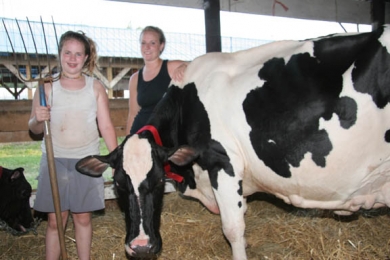House passes Farm bill, considers Northeast issues
CHENANGO COUNTY – The 2007 Farm Bill that passed the House last week boosts fruit and vegetable production, calls for land conservation efforts, and cuts back subsidies to affluent farmers whose critics say have taken the lion’s share of $25 billion in federal funding since 2002.
Locally, creating a federal milk pricing system that factors in high production costs and implements supply controls would also be welcomed provisions in the legislation, says Sherburne dairy farmer Peter Lathrop.
“I hope they find a way to make it so they can control the change in production,” said Lathrop, explaining that when prices – which were historically low this time last year – do go up, the tendency is for farmers to increase production, flooding the supply and lowering the price. “If the price of milk goes up, we can lock it in at that number of pounds of production.”
While it lists no concrete changes in milk pricing or supply caps, the legislation, which does not yet have a version in the Senate, calls for a review of the federal milk order system to make sure competitiveness and costs of production are being considered. Currently, prices are issued monthly by the U.S. Department of Agriculture under a system that has been in place since the Great Depression.
“The bill definitely benefits the Northeast more than it has in years past,” said Chenango County Farm Bureau President Bradd Vickers.








Comments